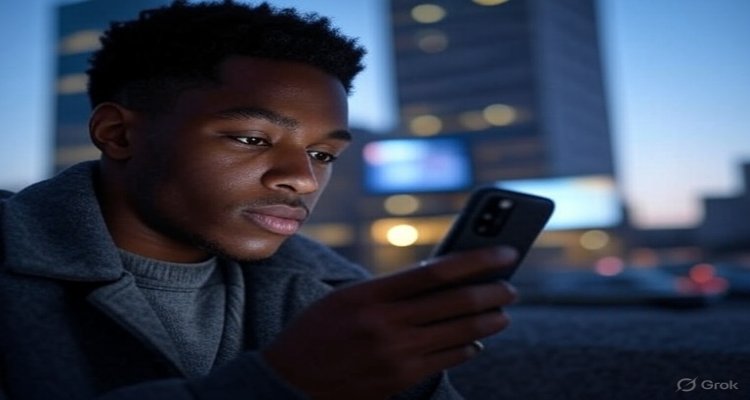The Science of Feeling Watched When You’re Alone

Why do we feel like someone is watching us when no one’s there? Neuroscience and psychology explain the eerie phenomenon of being observed alone.
Introduction: The Eerie Sensation of Invisible Eyes
You’re walking down a dimly lit street, or perhaps sitting quietly in your room at night, when a sudden shiver creeps up your spine. Without reason, you feel it—that uncanny sensation of being watched. Instinctively, you turn around, but no one is there. This peculiar, almost primal feeling has fascinated psychologists, neuroscientists, and everyday people alike. What triggers it? And why does it feel so real?
The Evolutionary Roots of Hyper-Awareness
Researchers suggest that the sensation of being watched is deeply rooted in human evolution. For early humans, survival often depended on detecting predators or hostile eyes in the wild. Those who were more alert to subtle cues—like the direction of a gaze or a shift in shadows—were more likely to survive.
This evolutionary mechanism, sometimes referred to as the “gaze detection system,” became hardwired into our brains. Even today, our brains are remarkably sensitive to eyes and faces, reacting strongly to the perception of being observed—even if it’s imagined.
The Brain’s Role: How Perception Becomes Reality
Neuroscience research shows that specific parts of the brain are responsible for processing gaze and attention. The superior temporal sulcus (STS) and the amygdala play key roles in detecting when eyes are directed toward us.
- Superior Temporal Sulcus (STS): Helps interpret where others are looking and whether their gaze is fixed on us.
- Amygdala: Regulates emotional responses, including fear and anxiety, amplifying the unsettling sensation when we sense unseen eyes.
Interestingly, even when no one is present, these brain regions may misfire, leading us to feel watched in empty spaces.
The Psychology of “Presence”
Psychologists call this phenomenon “the sense of presence”—the feeling that someone else is nearby when no one actually is. It’s commonly reported in situations involving:
- Isolation: People who spend long periods alone often report heightened sensitivity to invisible “observers.”
- Darkness or Uncertainty: Low visibility environments amplify vigilance.
- Stress and Fatigue: Anxiety and exhaustion make the brain more prone to misinterpret signals.
One well-documented example is from mountaineers and explorers, who often report sensing a “third man” presence during extreme isolation. The brain, under stress, may create the illusion of company as a coping mechanism.
Expert Insight: Why We Can’t Shake the Feeling
Dr. Colin Clifford, a vision scientist at the University of Sydney, explains that humans are so attuned to eye gaze that we often “over-detect” it. “It’s better, from an evolutionary perspective, to have a false alarm than to miss a genuine threat,” he notes.
Similarly, psychologists emphasize the role of social conditioning. From childhood, we grow up in environments where being watched—by parents, teachers, or peers—carries consequences. This social training reinforces our sensitivity to surveillance, making the feeling hard to escape even when we’re physically alone.
The Modern Twist: Technology and Surveillance Anxiety
In today’s digital age, the feeling of being watched has taken on new meaning. With surveillance cameras, smartphones, and data tracking, the boundary between real and perceived observation blurs. Even when alone, people may feel their actions are monitored—feeding into a heightened sense of invisible eyes.
This modern dimension adds weight to the phenomenon: it’s not just biology at play, but also our awareness of constant digital surveillance.
Impact & Implications
Understanding this sensation has implications across multiple fields:
- Mental Health: Chronic feelings of being watched can fuel paranoia or anxiety disorders.
- Law Enforcement & Security: Gaze detection research helps improve surveillance systems and facial recognition technology.
- Human Interaction: Insights into gaze sensitivity could influence design in virtual reality, robotics, and even therapy for social anxiety.
On a personal level, recognizing that the feeling often stems from our own brain’s wiring can help demystify the experience and reduce fear.
Conclusion: The Eyes in Our Minds
The next time you feel that unsettling sense of invisible eyes, it may not be a ghost or a stalker—but your brain’s ancient survival system flickering into action. From evolution’s hand to modern surveillance culture, the sensation of being watched is both a biological safeguard and a psychological mirror.
In the end, it’s a reminder of just how powerful—and sometimes misleading—our perception can be.
Disclaimer :This article is for informational purposes only and does not provide medical or psychological advice. For persistent or distressing experiences, consult a mental health professional.









